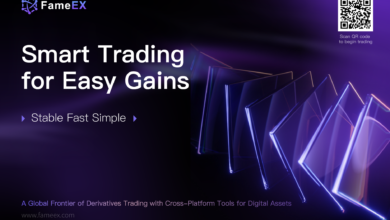Alaya: Redefining AI Data Management with Web3 and Swarm Intelligence

In the rapidly evolving AI industry, the demand for high-quality, diverse data is paramount. By 2030, the AI labeling data market is projected to reach over $18 billion, emphasizing the critical role data plays in the development and refinement of AI models. However, many small to medium AI developers face challenges in accessing and managing the vast amounts of data required for their projects. Alaya, an open Web3 AI data platform, addresses these challenges through its innovative approach that integrates swarm intelligence, Web3 principles, and AI technology into a cohesive ecosystem.
Project Highlights
1. Swarm Intelligence and Distributed Data Ecosystem
Inspired by the concept of swarm intelligence, Alaya connects data, communities, and AI technologies into an organic, distributed data ecosystem. This ecosystem leverages the collective intelligence of its community members to optimize data sampling and labeling, creating a highly efficient and accurate data pipeline. By distributing tasks across a wide network of contributors, Alaya ensures that AI developers can access high-quality data tailored to their specific needs.
2. Gamified User Experience and Incentives
Alaya’s platform is designed to be both engaging and rewarding for its users. Through a gamified interface, users participate in data labeling and other tasks, earning rewards in the form of Alaya’s native $AGT token. This incentivizes active participation and fosters a vibrant community of contributors who are motivated to provide high-quality data. Additionally, Alaya’s NFT system offers further engagement, allowing users to upgrade their NFTs to unlock advanced tasks and earn higher rewards.
3. Open Data Platform for Custom Data Requests
Alaya offers an open data platform that enables AI developers to post custom data requests and create reward pools. This feature is particularly beneficial for small to medium-sized AI startups that may have limited cash flow but need specific datasets to train their models. By enabling these developers to connect directly with a distributed community of data contributors, Alaya democratizes access to AI data and supports the growth of AI innovation.
Market Research and Competitive Analysis
To fully appreciate Alaya’s market positioning, it’s crucial to compare it with existing AI data platforms. The global AI data market, which is currently valued at approximately $5 billion, is dominated by a few key players like Appen, Scale AI, and Lionbridge. These companies provide large-scale data labeling services, but often at a high cost and with limited flexibility for smaller AI developers.
1. Cost Efficiency and Accessibility
Platforms like Appen and Scale AI typically cater to large enterprises with significant budgets, making their services less accessible to small and medium AI developers. These companies charge premium prices for data labeling, which can be prohibitive for startups and smaller projects. Alaya, on the other hand, provides a more cost-effective solution through its decentralized, community-driven model. By leveraging Web3 principles and offering custom token rewards, Alaya significantly lowers the entry barrier, making high-quality data services accessible to a broader range of AI developers.
2. Flexibility and Customization
While traditional platforms often require clients to fit into pre-defined service packages, Alaya’s open data platform offers unparalleled flexibility. Developers can tailor their data requests to meet specific project needs and create custom reward pools to incentivize the exact type of data they require. This level of customization is not typically available on conventional platforms, giving Alaya a distinct competitive edge.
3. Speed and Efficiency
One of the major pain points in the AI data market is the time it takes to collect, process, and label data. Traditional methods can be slow and labor-intensive, leading to delays in AI model development. Alaya addresses this issue with its proprietary auto-labeling toolset, which can increase labeling efficiency by 3-5 times compared to manual methods. By integrating reinforcement learning from human feedback (RLHF), Alaya also enhances the accuracy of its labeled data, reducing the need for rework and speeding up the overall AI development process.
4. Community Engagement and Growth
Platforms like Lionbridge and Appen rely on a centralized workforce to complete data tasks, which limits their scalability. In contrast, Alaya’s decentralized model taps into the power of a global community of contributors, driving organic growth and engagement. The platform’s gamified experience and NFT-based incentives further motivate users to participate, ensuring a continuous supply of high-quality data. This community-driven approach not only scales more efficiently but also fosters innovation by bringing diverse perspectives into the data collection process.
Technology Highlights
1. Data Auto-Labelling Toolset
Alaya’s proprietary auto-labeling toolset is a key feature that sets it apart from other AI data platforms. The toolset incorporates reinforcement learning from human feedback (RLHF) to fine-tune its models, ensuring superior accuracy in data labeling. This approach not only enhances the quality of the labeled data but also significantly increases labeling efficiency, multiplying it by 3-5 times compared to traditional manual methods.
2. Robust AI Model Training and Deployment
Alaya integrates an advanced AI model training and deployment toolset compatible with common deep learning frameworks such as TensorFlow, PyTorch, and MXNet. This allows developers to seamlessly train and deploy their models within the Alaya ecosystem. Furthermore, Alaya provides comprehensive data quality management tools, including data cleaning, pre-processing, and enrichment, to ensure that the datasets used for training are of the highest standard.
3. Secure Data Privacy and Ownership
In the era of increasing data privacy concerns, Alaya places a strong emphasis on data security. The platform employs secure data encryption and access control mechanisms to protect the privacy and confidentiality of all data processed within its ecosystem. This commitment to data security ensures that both AI developers and data contributors can trust the platform with sensitive information.
Roadmap and Future Developments
Alaya has already achieved significant milestones, including the launch of Alaya 1.0 and 2.0 on Arbitrum and opBNB, respectively, and the integration of advanced AI-based image and 3D point cloud labeling technologies. Moving forward, Alaya plans to continue expanding its platform with the introduction of new data categories, enhanced AI models, and the deployment of an Intelligent Modelling Layer (IML). These developments will further solidify Alaya’s position as a leader in the Web3 AI data space.
Conclusion
Alaya is at the forefront of revolutionizing AI data management by leveraging the power of Web3, swarm intelligence, and cutting-edge AI technology. By providing a distributed, open data platform that caters to the needs of small to medium AI developers, Alaya is democratizing access to high-quality data and driving the next wave of AI innovation. When compared with traditional platforms, Alaya stands out for its cost-efficiency, flexibility, speed, and community engagement—positioning it as a game-changer in the AI data market. As the platform continues to evolve, it will undoubtedly play a crucial role in shaping the future of AI development.






